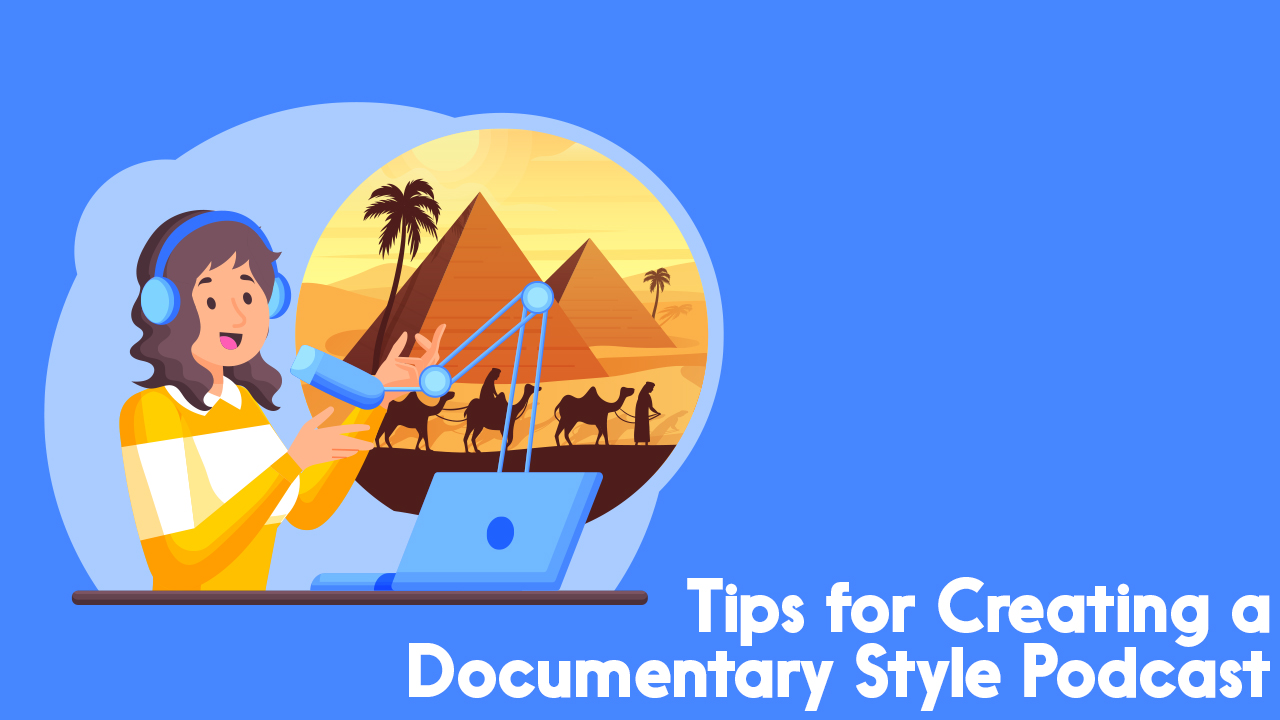Creating Highly-Produced Podcasts | Podcraft Season 9
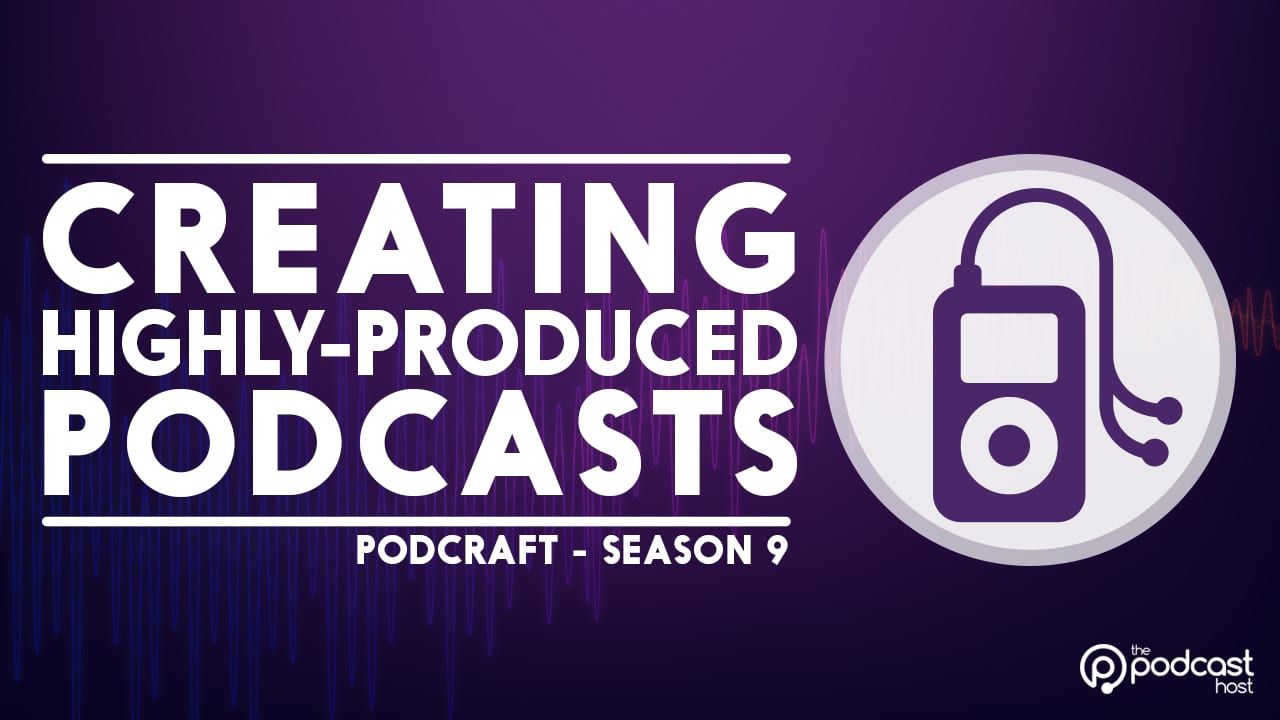
Whether you’re trying to stand out in an increasingly crowded market, or want to showcase your production skills, making a highly-produced podcast series can be great for building an audience and getting noticed.
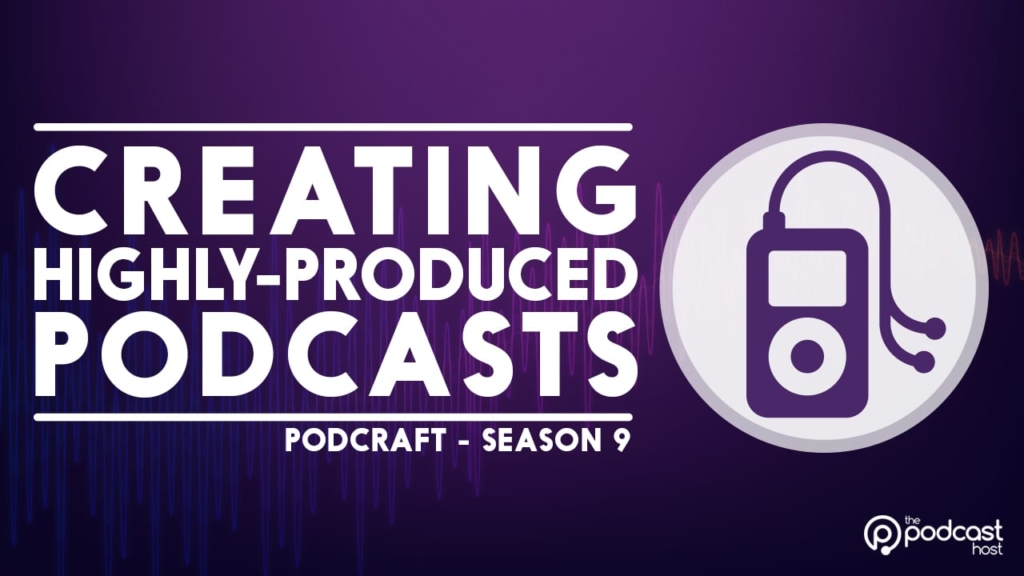
And by “highly produced” we’re really talking about shows that mix in multiple elements beyond the standard intro-content-outro template.
A much used example is obviously Serial, and highly produced podcasts are referred to by some as “NPR-style” or “BBC-style”.
The vast majority of highly produced shows come from the independent arena though, and in this season we want to provide you with the tools and knowledge to make your own.
Episode Resources
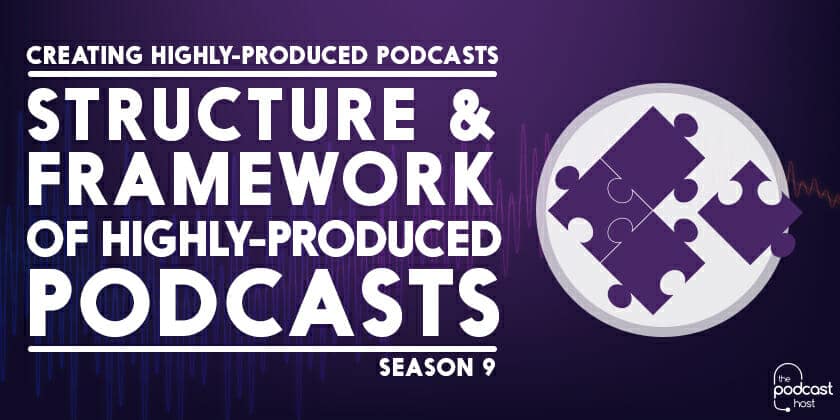
Structure & Framework of Highly-Produced Podcasts
Although there’s no rules in podcasting about how episodes must be structured, we do see some common themes when we look at highly-produced shows.
These podcasts tend to have more elements, and the presenter may duck in and out, introducing, getting out the way, then coming back to pass comment on something.
This might be compared to a “typical” podcast episode, where you might see the presenter introduce the show, carry out an interview, then close the show.
In the highly-produced arena we often see more than one guest per episode, and interviews chopped up into a narrative theme, as opposed to being played in a linear fashion.
In this episode, we’ll dive into the techniques you can use to structure and frame your “HPP” (can we call it that yet?) episodes.
Episode Resources
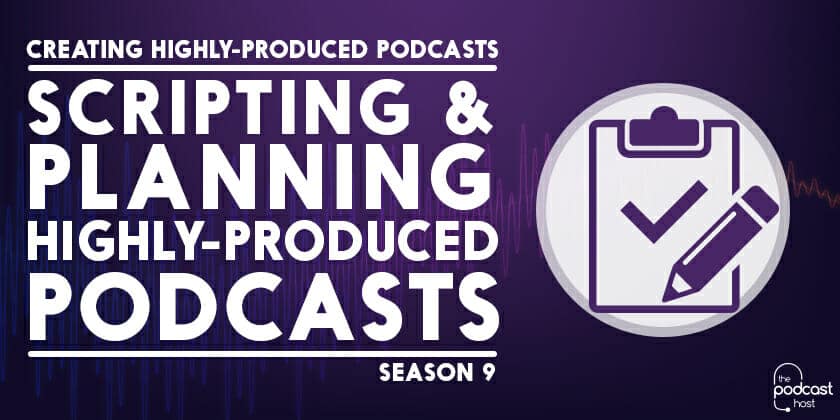
Scripting & Planning Highly-Produced Podcasts
One of the main things that sets a highly-produced podcast apart from a “standard” podcast is the level of scripting and planning.
It’s a good idea to think in advance about the ultimate aim of your series, the aims of each individual episode, and how they all fit and flow together.
There’s a decent chance you’ll be using interviews and guest contributions in your show. In this episode, we’ll talk about how you can arrange these clips in order to build your script around them.
We also cover scripting. How do you go about writing one, and what are the popular dedicated scriptwriting tools out there?
Episode Resources
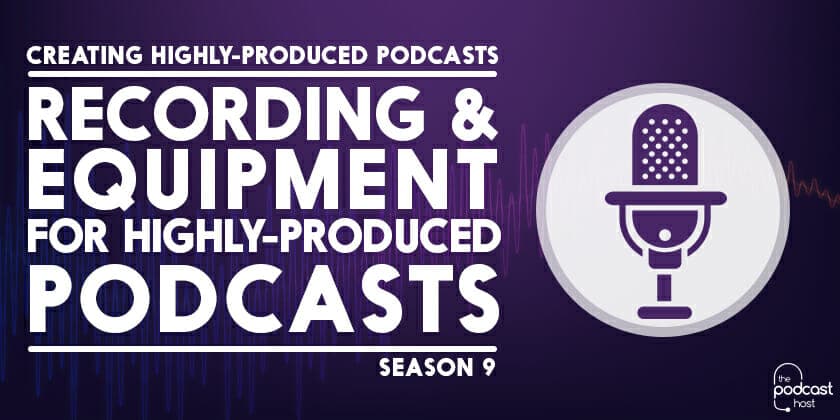
Recording & Equipment for Highly-Produced Podcasts
Do you need different equipment and recording methods to create a “highly-produced” podcast?
The short answer is no, but we’ll be taking a look at this question in more depth on this episode.
There are various elements that make up highly-produced episodes. You’ll need to record the presenter narration, as well as the interviews or expert contributions.
There’s definitely an overlap here with recording “standard” podcasts, but it never hurts to revisit these good practices and always ensure we’re recording good source material to work with.
Episode Resources
- USB Mics for Podcasting
- Digital Recorders for Podcasting
- Lavalier Mics for Podcasting
- Smartphone Lavalier Mics for Podcasting
- Recording Face to Face Interviews
- Best Tools for Recording a Podcast Online
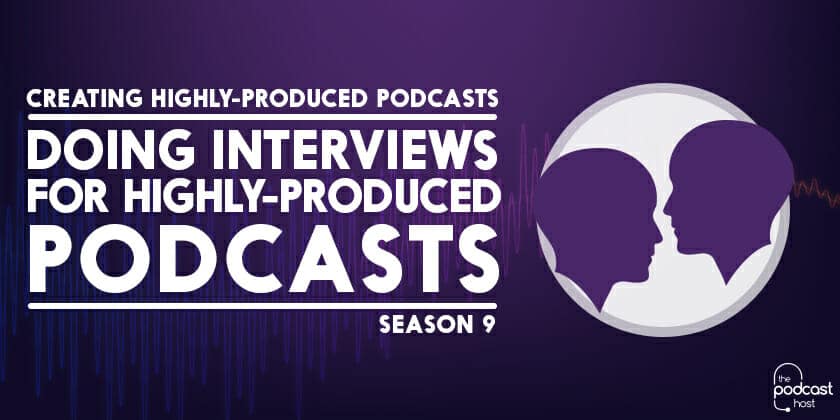
Doing Interviews for Highly-Produced Podcasts
It’s likely that you’ll want to have interviewees and guests on your highly-produced podcast. Like pretty much everything we’ve discussed in this series so far, there’s an overlap with recording interviews for “standard” podcasts. But there’s definitely some extra work in the planning and execution we can put in that can enhance our finished piece, whilst saving us time in the process.
Some of the things we’ll cover in this episode are…
- Preparing to record by knowing your narrative
- How to ensure you get the clip you need
- Why location interviews can be so effective
- How to prep your interviewee
Episode Resources
- Best Tools for Recording a Podcast Online
- Face to Face Interview Setups
- How Sound Podcast
- Out on the Wire Podcast
- Podcraft Academy
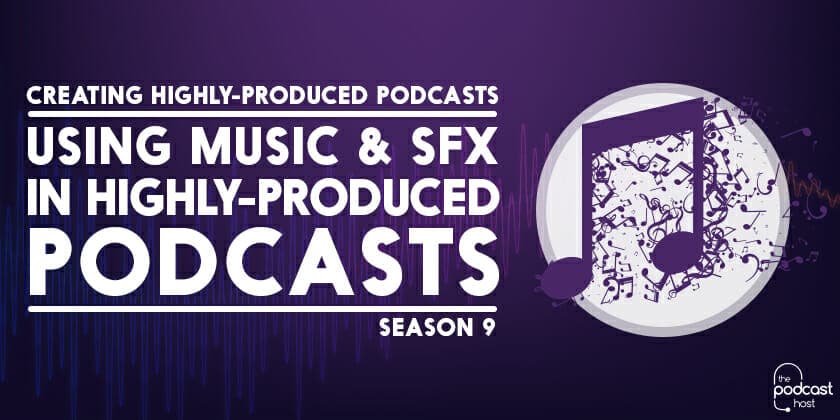
Using Music & SFX for Highly-Produced Podcasts
The use of music, ambience, and sound effects can really enhance your podcast episodes and give them that highly-produced feel.
In this episode we talk about the use of these elements, and how to get the right balance so that they enhance and compliment your content.
We discuss where to find music and sound effects for podcasts, and our process for layering them into our own productions.
We also cover podcast bitrates, working in stereo, and catering to the listener’s experience.
Episode Resources
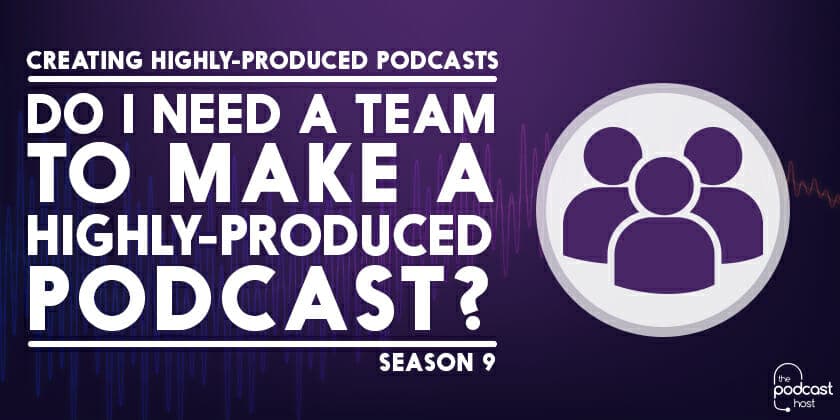
Do I Need a Team to Make a Highly-Produced Podcast?
The vast majority of podcasts are run by one single person. But does the “one man band” approach work for Highly-Produced Podcasts?
The answer is, it depends. There are reasons why it can work, and reasons why it might not.
You might really dislike some of the tasks involved in putting this type of show together, and be keen to outsource them to someone else.
You might simply not have the time to do it all yourself, or maybe it’s the expertise in certain areas that you feel you’re lacking in.
The starting point here is to break yourself down into a fully fledged production team, and ask yourself “do I want to do all of this?”
Team Roles
Creative Director
- Comes up with the ideas
- Identifies good content
- Shapes the narrative and storylines
- Always mindful of big picture. Where is this going, what is it achieving?
Audio Producer
- Records good clean source material
- Processes, cuts, and mixes all the audio on computer
- Creates a polished finished product
Content Gatherer/Interviewer
- Travels to meet and interview guests
- Knows how to interview, and what content to seek out
- Good people skills
- May also do interviews online via Skype etc
Script Writer
- Can write in a manner that sounds like natural speech
- Can tie the content and narrative together
- Is a natural storyteller
Presenter
- Confident and assured on the mic
- Presentation skills
- Can read without making it sound like they’re reading
Researcher
- Can seek out information online or in books
- Can identify what’s relevant vs what isn’t
- Focused, not easily distracted
- Can present information clearly so it can be interpreted by all
What are your strengths and weaknesses here?
Do you have the time, confidence, and willingness to wear every hat? If not, what would you like to do, and what would you like to outsource?
How do you build a team, or find someone to outsource your project to?
The simplest, quickest but potentially most expensive is to work with one single podcast production company.
Alternatively, you can manually put a team of friends/freelancers together. This is potentially cheaper, but can take longer to set up. It can also be risky, as “one weak link can break the chain”.
Where do you find team members?
- Friends/creative associates
- Fiverr, Upwork, Freelancer.com
- Advertise on sites like Gumtree or Craigslist
- Online communities like Facebook
- Local university and college courses
Managing your project
- Have clearly agreed SOPs (standard operating procedures)
- Regular updates and communication
- Set deadlines
- Slack is a good platform for communication
- Trello is an excellent project management tool
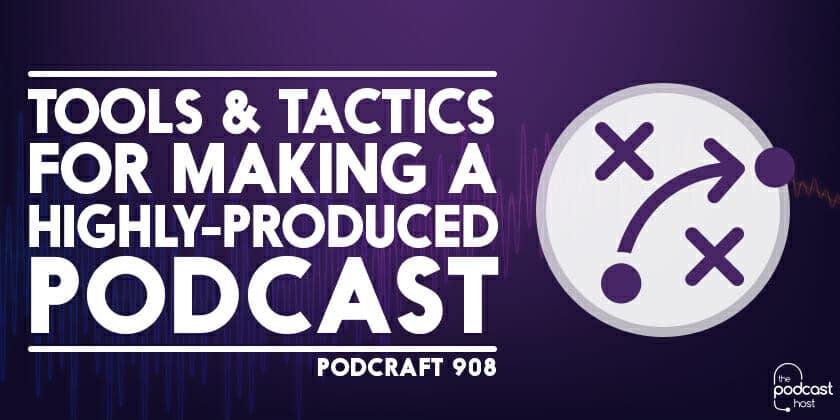
Tools & Tactics for Making a Highly-Produced Podcast
In the final episode of our season on creating Highly-Produced Podcasts, we look at some of the tools and tactics to make your workflow as smooth as possible.
Tools for Planning
Tools for Scripting
Tools for Production
Production Tips
- Have standard operating procedures for mixing in shared sessions.
- Have a good file naming system.
- Back up files on a network drive, or in the cloud.
Work With Us
If you’re planning to make a highly-produced podcast, or any other type of podcast for that matter, be sure to join us in Podcraft Academy.
That’s where you’ll find all our tools, courses, and downloadable resources. On top of that, we run weekly live Q&A sessions too – so you’ll always get the help you need to constantly move forward!
